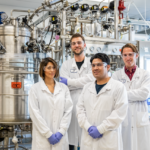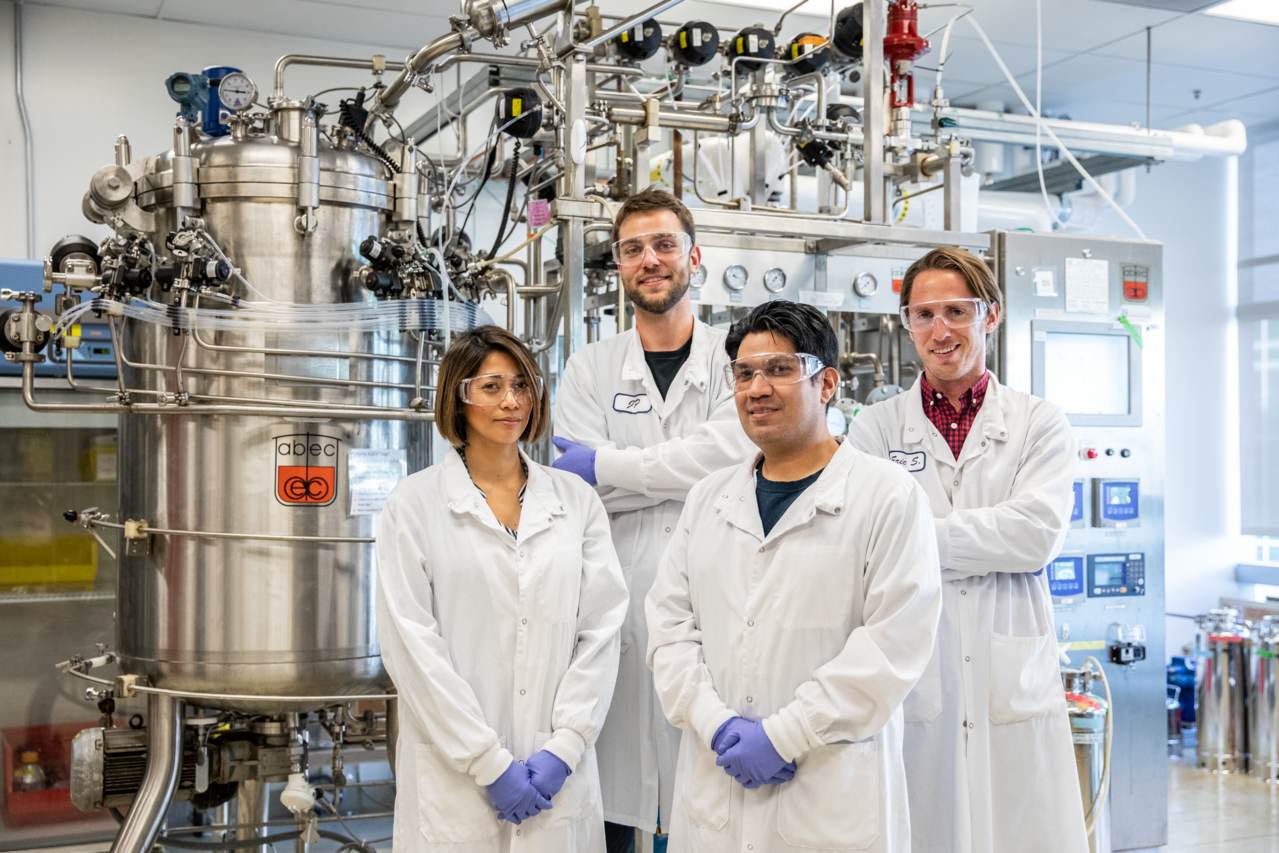 This winter, you can carve the fresh powder of the backcountry on a pair of high-performance skis made from a material produced by microscopic algae.
This winter, you can carve the fresh powder of the backcountry on a pair of high-performance skis made from a material produced by microscopic algae.
The skis, made by Bay Area biotech company Checkerspot, are a new addition to the long list of products currently being made from chemicals and compounds produced by specially engineered microbes – a field known as biomanufacturing. Driven to offer smarter, more sustainable materials, fuels, foods, and medicines, more and more companies are turning to biomanufacturing over traditional methods.
The Department of Energy’s Lawrence Berkeley National Laboratory is playing a key role in this 21st century industrial revolution. A collaboration with the Advanced Biofuels and Bioproducts Process Development Unit (ABPDU) at Berkeley Lab was vital to the development of Checkerspot’s eco-friendly skis, which were made with algae oil.
“This collaboration is a great example of what we do, which is to act as a bridge between basic science and industry,” said ABPDU research scientist Eric Sundstrom. “Our job is to keep the pipeline of these useful, innovative technologies moving from conception to commercialization.”
Read more in the Berkeley Lab News Center.




